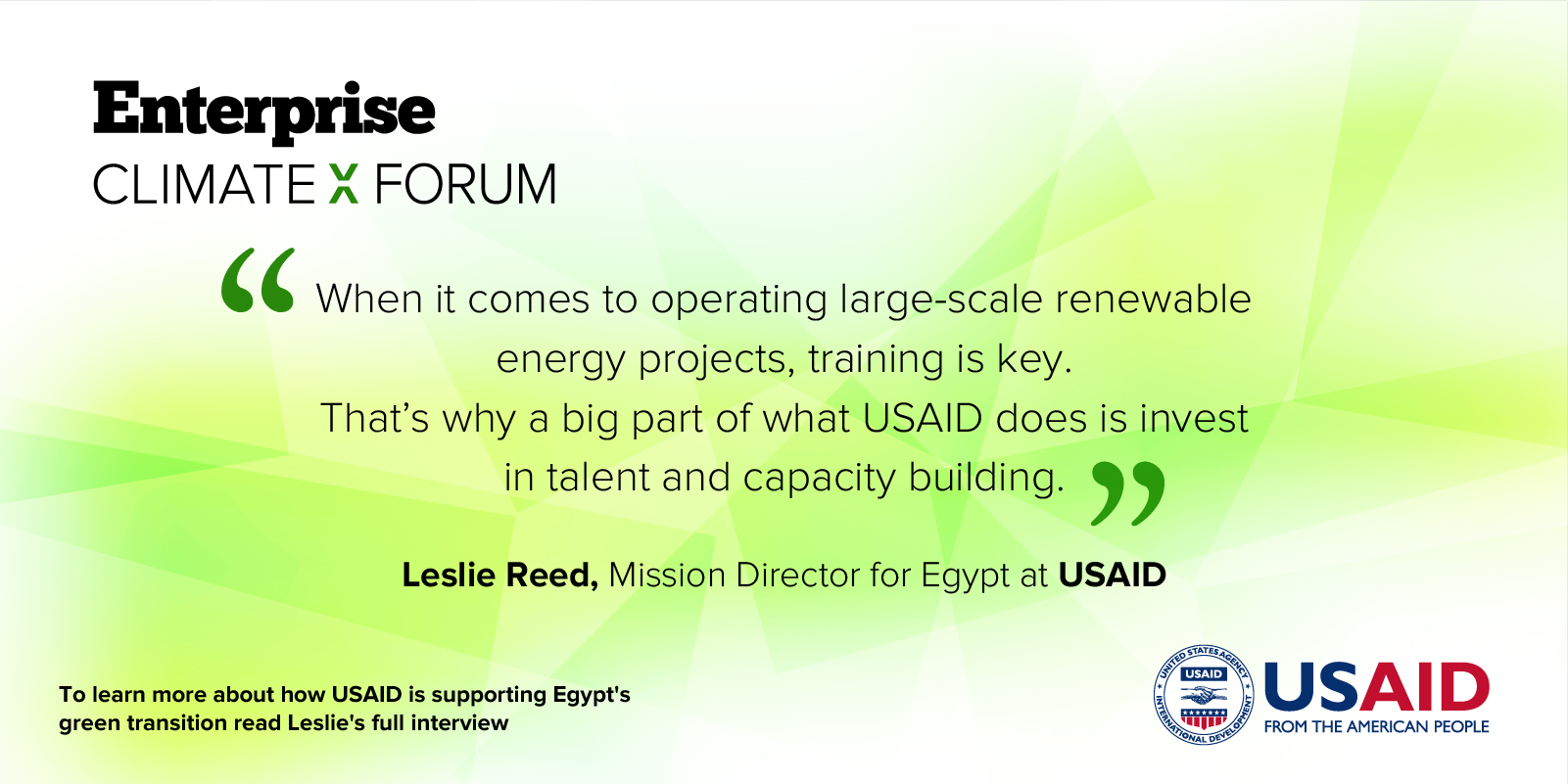- The IMF board is meeting to discuss Egypt’s loan request tomorrow. (What We’re Tracking Today)
- Cabinet approves USD 5.5 bn green ammonia plant. (Cabinet Watch)
- FinMin proposes new top wage tax rate. (Taxation)
- Damietta Container & Cargo Handling lists on EGX ahead of planned IPO. (IPO Watch)
- IACC’s Nada El Ahwal on three criteria for choosing which export industries to focus on. (FDI + Exports CEO Poll)
- Federal Reserves slows rate hikes but signals that it will stay hawkish into next year. (What We’re Tracking Today)
- El Sisi appeals to US for help on GERD. (Diplomacy)
- Oil prices might not be lower for long. (Planet Finance)
- Morocco’s World Cup journey comes to an end with narrow loss to France. (What We’re Tracking Today)
- My Morning Routine: Reem Safy, CEO, Al Safy Group

Thursday, 15 December 2022
AM — IMF meets tomorrow on our USD 3 bn facility + Cabinet approves USD 5.5 bn green ammonia plant
TL;DR
WHAT WE’RE TRACKING TODAY

Good morning, friends, and happy THURSDAY. We hope the week has been good for you — and those of you with spawn starting their winter break are able to pencil in some time to hang out with the kids as we head into the final weeks of the year. Extra special good wishes to folks whose progeny are returning to Egypt from university or life abroad.
DRIVING THE NARRATIVE ON EGYPT heading into the weekend: The IMF, whose executive board will meet tomorrow to review our request for a USD 3 bn facility on which we reached a staff-level agreement in late October after adopting what the Central Bank of Egypt said is a “durably flexible” exchange rate policy.
We’re optimistic that the IMF will come through with the facility — and hopeful that policymakers here at home have what it takes to keep pushing forward. It would be difficult for the IMF to turn its back on a nation that has become the poster child for IMF orthodoxy — particularly given that the Madbouly government and the good folks at the Central Bank of Egypt have made significant progress on the laundry list of conditions the IMF attaches to such facilities.
Thanks to strong tourism revenues, rising exports and foreign direct investment, we saw reserves inch up in November for the third month in a row to USD 33.5 bn — even as we made USD 1.5 bn worth of payments to external creditors, a senior banking source tells us. Inflows saw total reserves rise about USD 390 mn in the last three months.
“Egypt has been and remains committed to paying its external debt — we have never defaulted” and have no plan to start, the banker told us, adding that “our external debt-to-GDP ratio is still within safe limits at 34.1%, well below the 50% threshold.”
Egypt’s USD position is improving because of FDI and exports — two topics that readers by now know are near and dear to our hearts.
- The nation’s exports were up just over 53% in the fiscal year ending June 2022 to USD 43.9 bn;
- FDI came in at USD 9 bn in the same period;
- While tourism revenues surged 121% to USD 10.7 bn.
WE NEED MORE WORK ON THAT FRONT and think policymakers need to consider our five-step recipe to bring in USD 50 bn worth of FDI per year while transforming us into an export powerhouse.
The folks at the Sovereign Wealth Fund are doing great work, but we need a dedicated investment promotion agency to work alongside them.
The SFE’s program to land Gulf investors has seen the state sell assets for proceeds north of USD 4 bn. Gulf sovereign funds have a mandate to invest here, and they’re choosing good names. Abu Dhabi has acquired shares worth more than USD 910 mn in CIB, as well as hundreds of mns worth of USD in shares of Misr Fertilizers, Abu Qir, Fawry, and Alex Containers. Abu Dhabi Ports invested in our friends at IACC, acquiring 70% of our nation’s largest private shipping company for USD 140 mn. Meanwhile, KSA’s Public Investment Fund has invested USD 1.3 bn in acquiring minority stakes in four state-owned companies, including Abu Qir, Misr Fertilizers, Alex Containers and e-Finance.
Next on the block: KSA’s PIF is looking to acquire United Bank for c. USD 600 mn through a new vehicle it has established to invest in the Egyptian economy.
And there’s more to come: The Sovereign Fund of Egypt is working on a plan to take to market more than 40 projects wroth north of EGP 140 bn — much of it will be of interest to UAE and Saudi investors, and we hope to see Western and other regional institutions hop on board.
What do investors have appetite for? According to the SFE, it’s everything from food, pharma, education, and healthcare to financial inclusion, tourism, and export-oriented manufacturing.
As we discussed at last week’s Enterprise Climate Forum, we also expect to see significant inflows of capital into climate-related industries. Egypt is uniquely well-positioned to benefit from the global rush to manufacture green hydrogen as a clean fuel for hard-to-decarbonize industries — the Madbouly cabinet has been ahead of the curve here. Attendees and our guests on stage were also optimistic about opportunities to invest in food, agriculture, desalination, logistics, and services.
And there’s a massive chance to become a global hub for the manufacture of green energy components. We need to build 40 GW of clean energy capacity to fuel all of the hydrogen plants the Madbouly government has lined up — it presents a unique opportunity to localize the manufacturing of everything from wind turbines and blades to solar panels and electrolyzers. And where you manufacture, you can export…
Getting the IMF’s seal of approval tomorrow is just the beginning. None of us — from government to the private sector — can take our foot off the gas. Presuming we bring home the USD 3 bn facility, it’s all about execution from here on out: We need to get serious about FDI and exports. And we need to make it easier for ALL companies to do business here (whether they’re foreign or Egyptian).
Our friends in government would do well to listen to the business community here. Yes, we’re capitalists. We’re also proud Egyptians who want to create meaningful, well-paying jobs that build a stronger and more prosperous nation. As The Colonel always told us: A rising tide floats all boats.

Fed slows rate hikes but stays hawkish: The Federal Reserve slowed the pace of its interest rate hikes yesterday but indicated that it will continue to stay hawkish into next year despite clear signs that inflation has reached its peak. The central bank raised rates by 50 bps at its final meeting of the year, a moderate increase by recent standards that brings to an end a run of four consecutive 75-bps hikes. This brings the target range of the federal funds rate to 4.25-4.5%, its highest level since late 2007.
Another 75-bps still to go? Fed officials expect rates to end 2023 at 5.1% before falling to 4.1% the year after, implying that rates will rise by another 75 bps next year. “We still have some ways to go,” Fed chair Jerome Powell told reporters at the post-meeting presser.
Stocks fell on the news: On a volatile day of trading, US stocks finished the session in the red as traders weighed Powell’s hawkish comments. The S&P 500 lost 0.6% while the tech-heavy Nasdaq ended 0.8% in the red. Shares in Asia are falling this morning, with the Hang Seng the biggest loser ahead of dispatch (-1.6%), and European and US markets are set to follow them later today.
The news is dominating the conversation internationally this morning: AP | Reuters | Bloomberg | FT | WSJ | NYT | Washington Post | CNBC.
MEANWHILE- The Central Bank of Egypt is due to meet next Thursday for its final policy meeting of the year, and a few analysts we’ve heard from this week are penciling in another 200-bps hike, possibly in an unscheduled meeting before 22 December. In parallel, Goldman Sachs’ MENA economist Farouk Soussa has joined BNP Paribas and Al Ahly Pharos in calling a snap rate hike and allowing the EGP to weaken further, writing that he expects “decisive action towards clearing the FX market” in the coming days.
EGP WATCH- The EGP fell 0.2% to 24.73 against the greenback yesterday. The currency has now fallen 25.2% since the central bank moved to what it called a “durably flexible” exchange rate at the end of October and is down by c. 57.5% since March’s devaluation.
|
WHAT’S HAPPENING TODAY-
It’s e-invoicing deadline day: Companies have until the close of play today to register with the Tax Authority’s e-invoicing system. Only 150k companies had signed up to the new system as of the end of November, well below a sought goal of 1 mn companies to register under the system.
REMEMBER- This deadline no longer applies to the self-employed: The Finance Ministry pushed the deadline for self-employed professionals — including doctors, pharmacists and lawyers — to 30 April 2023 after widespread opposition to the system.
The US-Africa Leaders’ Summit wraps in Washington, where President Abdel Fattah El Sisi is among the 49 African heads of state in attendance. We have coverage on El Sisi’s meeting with Secretary of State Anthony Blinken yesterday in this morning’s Diplomacy, below.
PSA- Retailers have two weeks to start clearly displaying the prices of all their goods under efforts aimed to tame food price inflation, PM Moustafa Madbouly announced in a statement by the Cabinet. People who don’t comply with the rules are at risk of having their shops shut down and their stock confiscated and sold to citizens. “We can’t allow in such extraordinary circumstances to leave a segment [of traders] to exploit circumstances to achieve additional profit over the fair and logical price [of goods],” he said.
Transport Minister Kamel El Wazir is in the UK to attend meetings of the International Maritime Organization (IMO).

WORLD CUP-
It was the end of the line for the Moroccans at the World Cup last night after they lost 2-0 to France in the semi-final. A spirited performance saw the Lions go close to scoring on several occasions (including a spectacular bicycle kick by Jawad El Yamiq, which would have been the goal of the tournament had it gone in) but France’s quality in front of goal saw them through. After taking the lead early on, the French were content to cede possession to Morocco, and after weathering some intense pressure in the second-half, got that all-important second goal in the 79th minute to wrap up the tie.
This sets up an Argentina v France, Messi v Mbappe final showdown at the Lusail Stadium on Sunday. Morocco and Croatia will fight it out for third-place on Saturday.
Somabay brings out the best in majestic natural elements where raw beauty and endless activities reign supreme. Immerse yourself into a picturesque getaway all year long. This is simply Somabay. For more information, call 16390 or visit www.somabay.com.
CABINET WATCH
Egypt approves USD 5.5 bn green ammonia plant
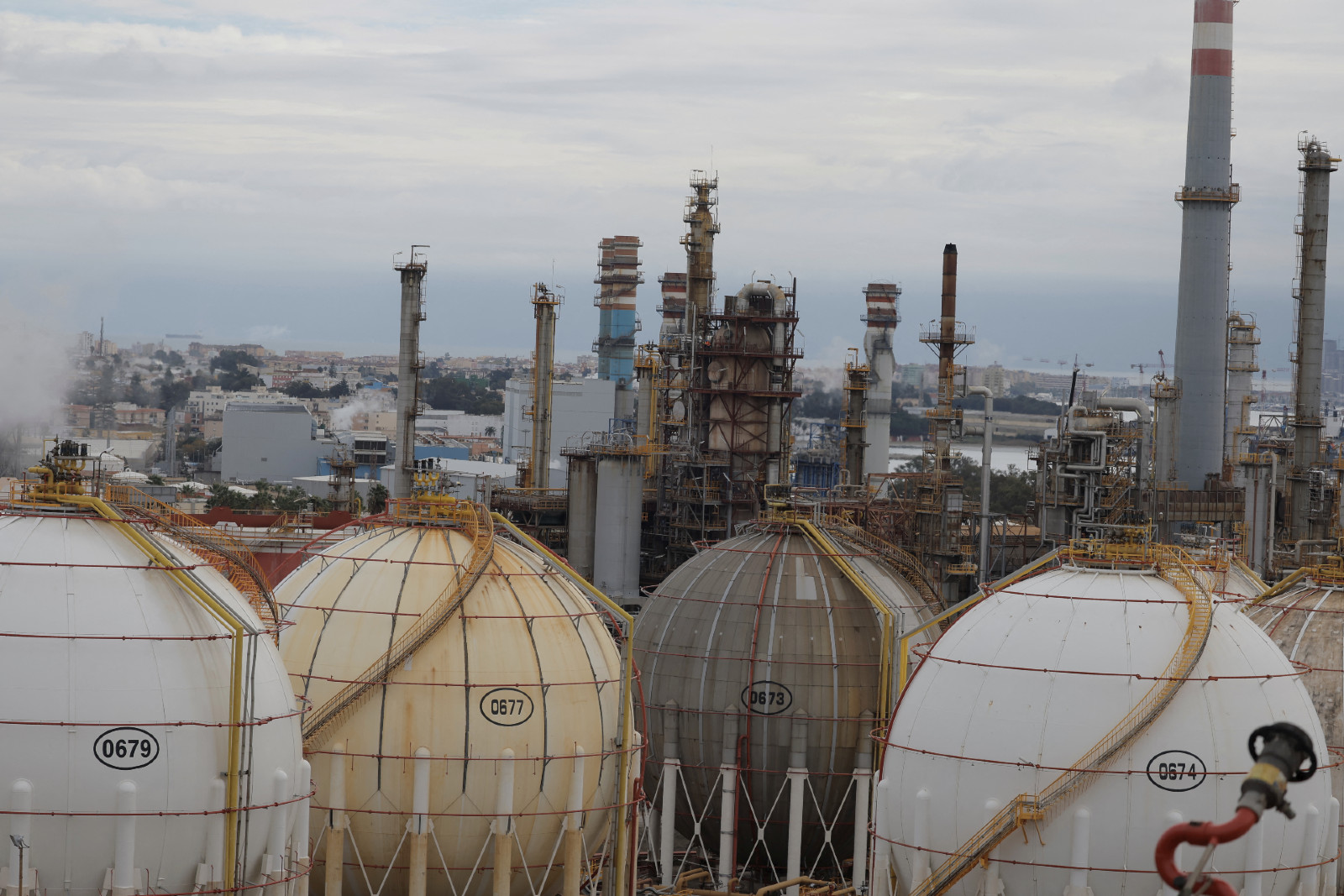
Ministers have awarded a golden license for a USD 5.5 bn green ammonia plant in Ain Sokhna, cabinet said in a statement following its weekly meeting yesterday. The plant will have an annual production capacity of 1 mn tons and will create 10.6k jobs during the construction and operation phases, according to the statement.
Who’s building it? A company going by the name of the Egypt Green Ammonia Company was handed the license for the facility. We’ve so far been unable to obtain any information about the company or its ownership.
That’s not all: The 100 MW green hydrogen plant being developed by Scatec, Fertiglobe and Orascom Construction also received a license from ministers yesterday. The companies last month began commissioning the first phase of the USD 135 mn plant and signed a framework agreement at COP27. The facility will produce up to 15k tons of green hydrogen a year.
Part of Egypt’s push to become a regional hub for green energy: The government signed nine framework agreements during COP27 with foreign companies to construct several green hydrogen and ammonia facilities in the Suez Canal Economic Zone. The facilities would cost a combined USD 83 bn and would collectively produce up to 7.6 mn tons of green ammonia and 2.7 mn tons of hydrogen a year when fully operational.
The plants were two of eight projects worth a combined USD 6.8 bn that were awarded golden licenses yesterday as part of government efforts to attract more investment into the industrial sector:
- A USD 400 mn feed, chemicals, and phytonutrients factory by Emirati fertilizer company CFC Group in Qena.
- A EGP 8.8 bn (USD 356 mn) home and electrical appliances manufacturing and assembly facility by El Araby Group in Menoufiya.
- A EGP 3.8 bn (USD 154 mn) factory that will produce vaccines and other medical products.
- A USD 135 mn industrial complex for electrical appliances by Haier Egypt in an industrial zone southwest of 10th of Ramadan.
- A EUR 100 mn (USD 107 mn) project by Sumitomo Electric Wiring Systems Egypt to manufacture wiring systems for vehicles in Tenth of Ramadan.
- A USD 30 mn project in Fayoum by Yazaki Egypt to manufacture wire harnesses for vehicles.
Golden licenses? Golden licenses fast-track new industrial and infrastructure projects. Also known as “single approval licenses,” they allow investors to require only one approval that covers everything from establishing the project, including land allocation and building licensing, through to the operation and management of the project. You can check our guide on the golden license here.
REMEMBER- The approvals come weeks after President El Sisi ordered that all investors be granted three-month golden licenses, making it easier for them to set up projects. It’s unclear if the approvals for the selected projects yesterday would only be set for three months.
PRICE CAP ON RICE EXTENDED-
The cabinet approved an extension of the price cap on white rice for an additional three months, according to a separate cabinet statement. It extended price caps on rice depending on quality per kg, with premium quality set at no more than EGP 18. Other packaged rice is set at EGP 15, while non packaged rice will be sold at no more than EGP 12.
REMEMBER- Rice has been designated as a “strategic commodity” last month for at least three months under efforts to deter traders who try to exploit the opportunity to hoard rice amid a global shortage of commodities.
EASIER TERMS FOR EXPAT CAR SCHEME-
Cabinet wants to make it easier for Egyptians living abroad to buy a car under the government’s new car import scheme. Buyers will no longer be required to deposit fees for the program three months before transfers are made, cabinet said yesterday. They can instead provide to the government with a bank statement as proof of their ability to pay. A requirement to have the Foreign Ministry certifying residences, bank statements and other documents related to the imported vehicles data was also scrapped. The moves are designed to make it easier for Egyptian expats to benefit from the program, Cabinet spokesman Nader Saad said, according to the statement.
TAXATION
FinMin mulls wage tax hike

Salaries above EGP 800k could be subject to a new top tax rate: The Finance Ministry is proposing amendments to the Income Tax Act that would enforce a new 27.5% wage tax rate on salaries of more than EGP 800k a year, a source with knowledge of the matter told Enterprise. The amendments have been sent to the House of Representatives for discussion, our source said. Annual earnings over EGP 400k are currently taxed at a top rate of 25%.
A higher top rate would help the government fund proposed tax cuts that would benefit lower income earners, our source told us. The Finance Ministry earlier this year drafted amendments that would raise the income tax exemption threshold for all earners to EGP 15k from EGP 9k.
Raising the ceiling for income exempt from wage tax to EGP 15k from EGP 9k will impact some 22.5 mn taxpayers, our source told us.
OUR TAKE- New taxes in the current climate make it more expensive for businesses to give raises and invest in the very growth that creates new jobs — particularly at companies that do not employ large numbers of blue collar workers. The folks at the Tax Authority have a tough job — we don’t envy them. But amid spiraling inflation, high interest rates, and the prospect of further weakness in the EGP, today simply isn’t the day to make it more expensive to employ the nation’s best and brightest.
IPO WATCH
Damietta Container & Cargo Handling lists on EGX ahead of planned IPO
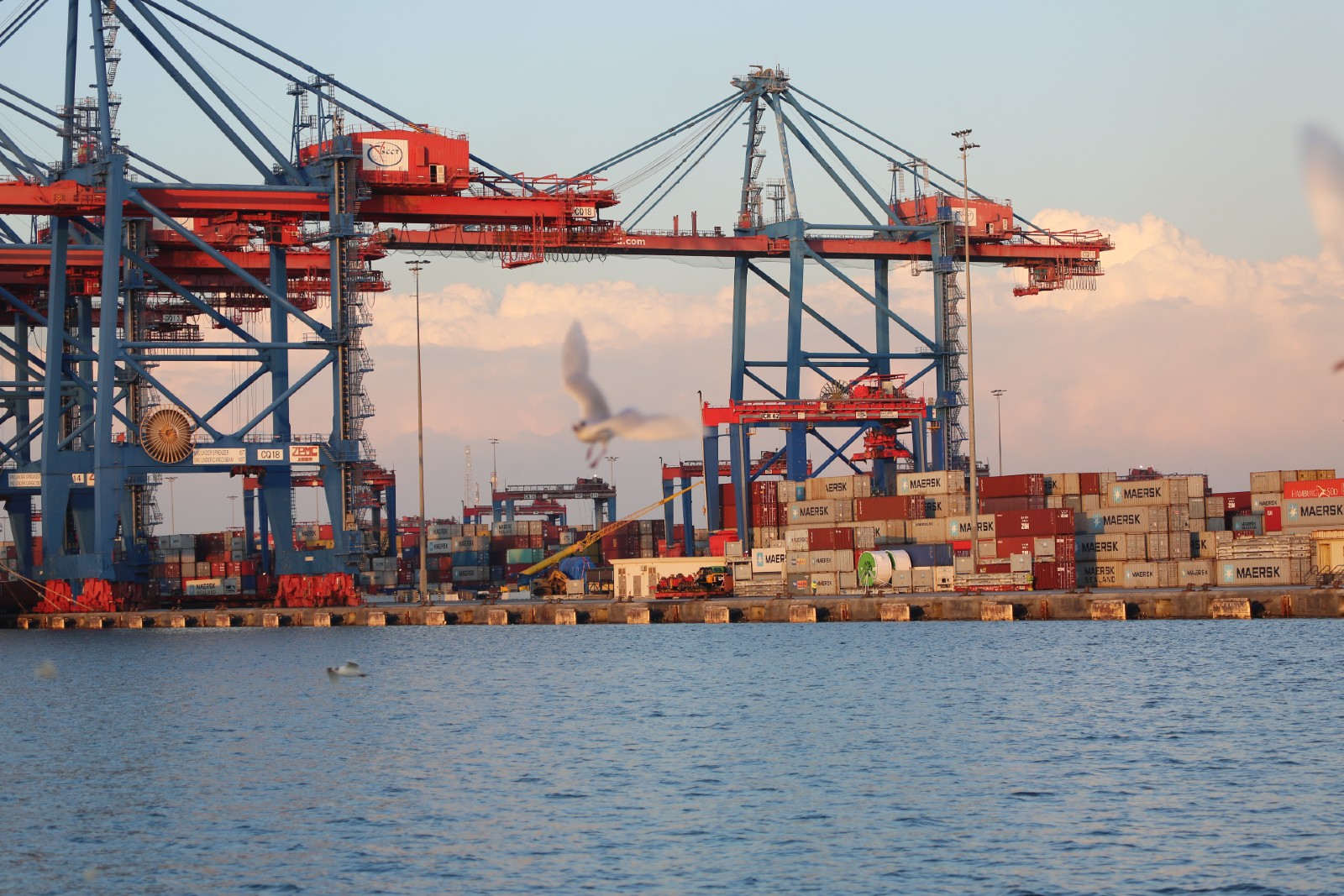
The EGX has approved the temporary listing of the Damietta Container & Cargo Handling Company’s (DCHC) shares ahead of a potential IPO next year, Al Mal reported yesterday. The shares will be listed for six months while the company works to meet the requirements to IPO on the exchange and obtain regulatory approvals.
Port Said Container & Cargo Handling Company did the same last week: The firm listed its shares on the exchange last week as it moves forward with its IPO plans. The state-owned companies are reportedly considering offering stakes as large as 25% in the first half of 2023.
Advisors: CI Capital is reportedly financial advisor for both offerings, while Finbi Financial Advisory will carry out the fair value studies within the next two months, sources told Al Borsa.
Expect to see at least five listings “in the coming period,” EGX head Ramy El Dokany was quoted as saying earlier this month. Finance Minister Mohamed Maait also said last week that the government could sell stakes in companies in the banking and oil sectors before March 2023.
The EGX has been on a tear in recent weeks, becoming one of the world’s best-performing exchanges in the wake of October’s currency devaluation. The benchmark EGX 30 index has surged almost 80% since July in an abrupt reversal of the bearish conditions during 1H 2022 that put the local IPO market on ice.
CEO POLL
Nada El Ahwal’s three criteria for choosing which export industries to focus on

We recently had breakfast with 20 top CEOs to talk about why exports and FDI are key to our economy going forward. After reading our five-step recipe for turning Egypt into a global export hub and FDI magnet, every participating CEO has agreed to answer two questions on the record.
We’ve already heard from: GSK’s Mohamed El Dababy | McKinsey’s Jalil Bensouda | Somabay’s Ibrahim El Missiri | ALC Alieldean Weshahi & Partners’ Bahaa Alieldean | HSBC Egypt’s Todd Wilcox | Actis’ Sherif El Kholy | Amazon’s Omar El Sahy | BII’s Sherine Shohdy | Mansour Automotive’s Ankush Arora | Apex’s Tom Maher | Travco’s Moataz Sedky | Cayesh’s Mahmoud Hassan.
Speaking to us today: Nada El Ahwal (LinkedIn) is chief strategy officer at Transmar, an Egyptian shipping and logistics company founded by the El Ahwal family more than 40 years ago. Transmar operates across the Middle East, Red Sea, Arabian Gulf and Eastern Coast of Africa and handled 109k TEUs last year. Transmar parent IACC recently sold a 70% stake to Abu Dhabi Ports Group.
ENTERPRISE- Which industry would you put on a focused short list — and why?
NADA EL AHWAL- I have three criteria for selecting industries to be on an export shortlist: industries that use lots of local components to avoid dependence on imports, value-added products that we can sell at a higher value rather than relying on exporting raw materials, and
sectors that will build an ecosystem of feeding industries to create a ripple effect of industrialization and job creation.
Agri-produce is one of the fastest growing industries where Egypt has a natural competitive advantage and proximity to key global markets such as the EU, which is our largest trading partner. The global landscape makes this especially interesting as food security post-covid has become a key concern for several markets. Tomatoes for concentrate and olives are two great examples where Egypt has a huge competitive advantage in terms of climate and natural resources, but local producers need support on quality and supply chain issues as they currently suffer tremendous losses in production and transportation.
Glass production is another area where we have an advantage thanks to the abundance of raw materials such as sand and limestone. This fulfills the local component and does not depend on imports. Exporting a finished or semi-finished product will yield a far better return than just exporting the raw materials.
Fertilizer is another area where we can add value. Instead of exporting raw materials like rock phosphate, we should focus on producing a final product — phosphate and nitrogen-based fertilizers.
Egypt’s cement industry should capitalize on developments overseas. At a time where Europe is facing an energy crisis, we have a surplus of underutilized local assets. This opens up a market we are well positioned to serve for exports.
And finally, although there is an import component to the manufacture of home appliances and white goods, this sector can both stimulate feeding industries and be competitive abroad in regions where Egypt has favorable trade agreements such as COMESA.
E- Why are exports and FDI the way forward?
NA- Egypt is a net importer and pays a large monthly ticket due to its trade deficit: our imports are significantly larger than our exports in both value and volume. The way forward needs to be focused on reducing this gap by exporting more cargoes at a higher value.
LEGISLATION WATCH
Unified Building Law amendments approved by Senate committee
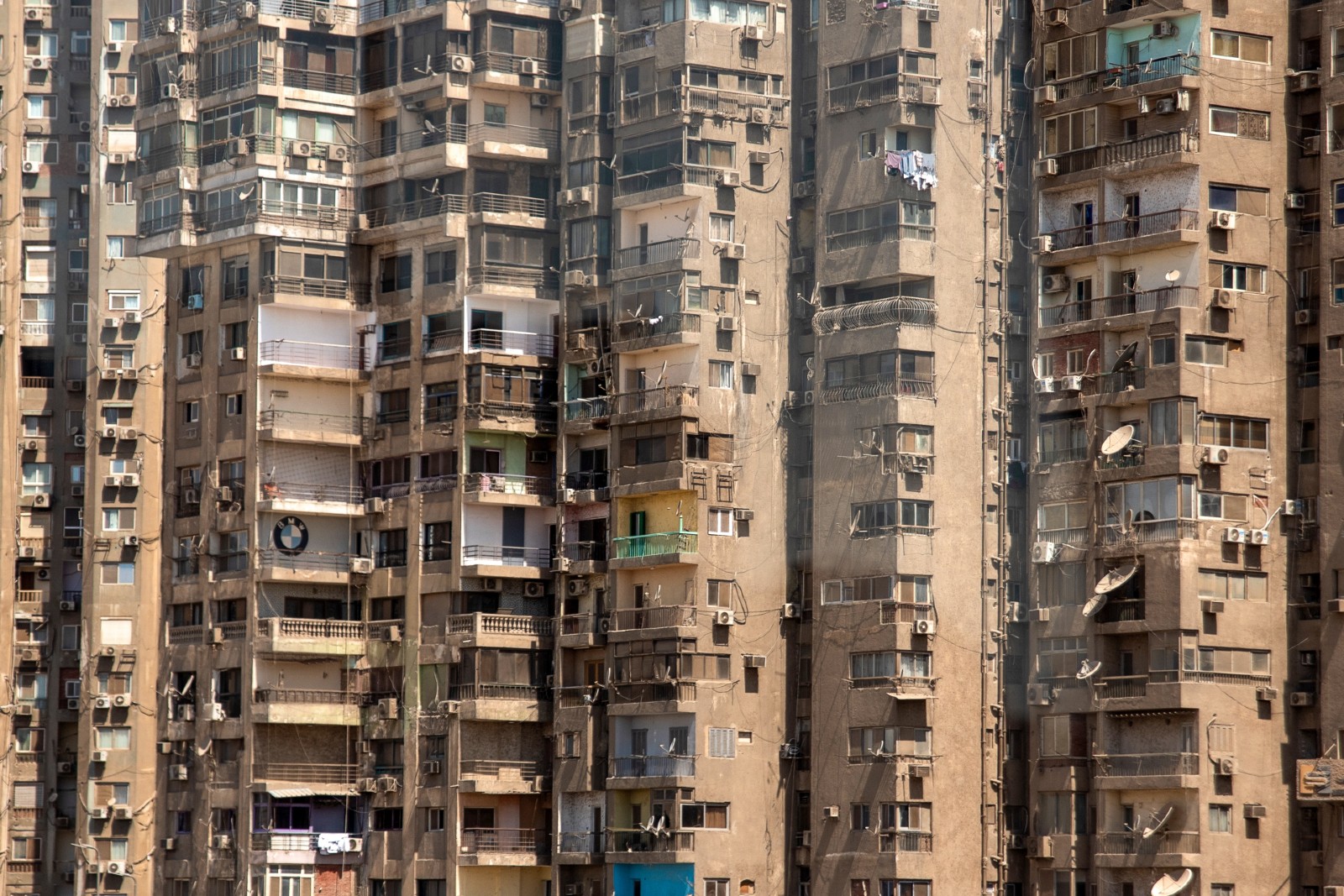
Unified Building Law gets Senate committee nod: The Senate Housing and Local Administration Committee approved amendments to the 2008 Unified Building Law. The five-article bill bans construction outside authorized areas in cities, villages and districts. Some exceptions are made for plots that serve agricultural and livestock production, public service projects, and agricultural land outside villages but will need to be approved by the agriculture minister and the cabinet, said committee chair Khaled Said.
And more: The housing minister will be tasked with issuing the executive regulations within three months of the legislation being signed into law. A Higher Council for Planning and Urban Development will be set up and led by the PM to take charge on proposing laws on urban development, evaluating national strategies of urban development projects and setting conditions required for licensing urban projects.
What's next: The bill will be drafted to the Senate’s General Assembly for discussions and a vote in an upcoming session. It will then be referred to the House.
A note on the new building reconciliation law: Both the government and the House will be drafting the law’s executive regulations, Housing Minister Assem El Gazzar said. “We want these regulations to win the satisfaction of all and so we should draft it in coordination with the House,” El Gazzar said. His statements came during a House Housing Committee meeting on the reconciliation bill.
What’s next: The bill could be up for discussion and vote before the House when it reconvenes on Sunday 18 December.
ALSO FROM THE SENATE- The Senate Trade and Industry Committee approved a proposal to set up a database for the industrial sector affiliated with the Federation of Egyptian Industries that will serve as a source of information for companies and investors.
MOVES
The NBA is opening an office in Egypt

Mohamed Abdel Motaleb Soliman (LinkedIn) was appointed the head of the North American National Basketball Association’s (NBA) new Egypt office, according to an NBA statement. The office will become its fourth in Africa when it opens in early 2023, the statement read. Soliman most recently served as vice president of the Egyptian Basketball Federation and deputy secretary-general of the Egyptian Olympic Committee.
LAST NIGHT’S TALK SHOWS

It was once again a slow night for talk shows as we come closer to a wrap up of 2022, with coverage focused mostly on President Abdel Fattah El Sisi’s participation at the US-Africa summit in Washington, the Public Shops Law, and efforts to boost the country’s exports.
A GERD-focused meeting between El Sisi and several Republican leaders got coverage from Masaa DMC (watch, runtime: 3:41). El Sisi’s meetings in Washington also got a mention from Al Hayah Al Youm (watch, runtime: 2:39), which had on ambassador Mohamed Hegazy, former assistant minister of foreign affairs, who spoke of the summit’s importance amid growing international competition between the US, China and Russia for influence in Africa (watch, runtime: 11:17).
The number of shops impacted by the newly-introduced Public Shops Law: There are 4 mn unlicensed shops in Egypt which will now have to apply for licenses under the Public Shops Law, which came into effect earlier this week, Mohamed Al Fayoumi, an official at the Local Development Ministry, told Masaa DMC (watch, runtime: 20:40). Owners of unlicensed shops have one-year to apply to obtain licenses, which will be issued within 90 days. People who have their applications rejected will be able to appeal the decision, Al Fayoumi said. Shop owners will also need to obtain security clearances before being issued licenses, according to a ministerial decree issued this week.
One of our favorite topics got some attention: Masaa DMC’s Ramy Radwan dedicated a segment to covering Egyptian exports of ready-made garments, which rose to USD 1.91 bn during the first nine months of the year, up from USD 1.41 bn last year (watch, runtime: 3:27). Industry leaders see exports rising to USD 2.4 bn by the end of the year, while Marie-Louis Bishara, who heads Apparel Export Council, told him of plans to raise this to USD 8 bn by 2026 (watch, runtime: 6:05).
ALSO ON OUR RADAR
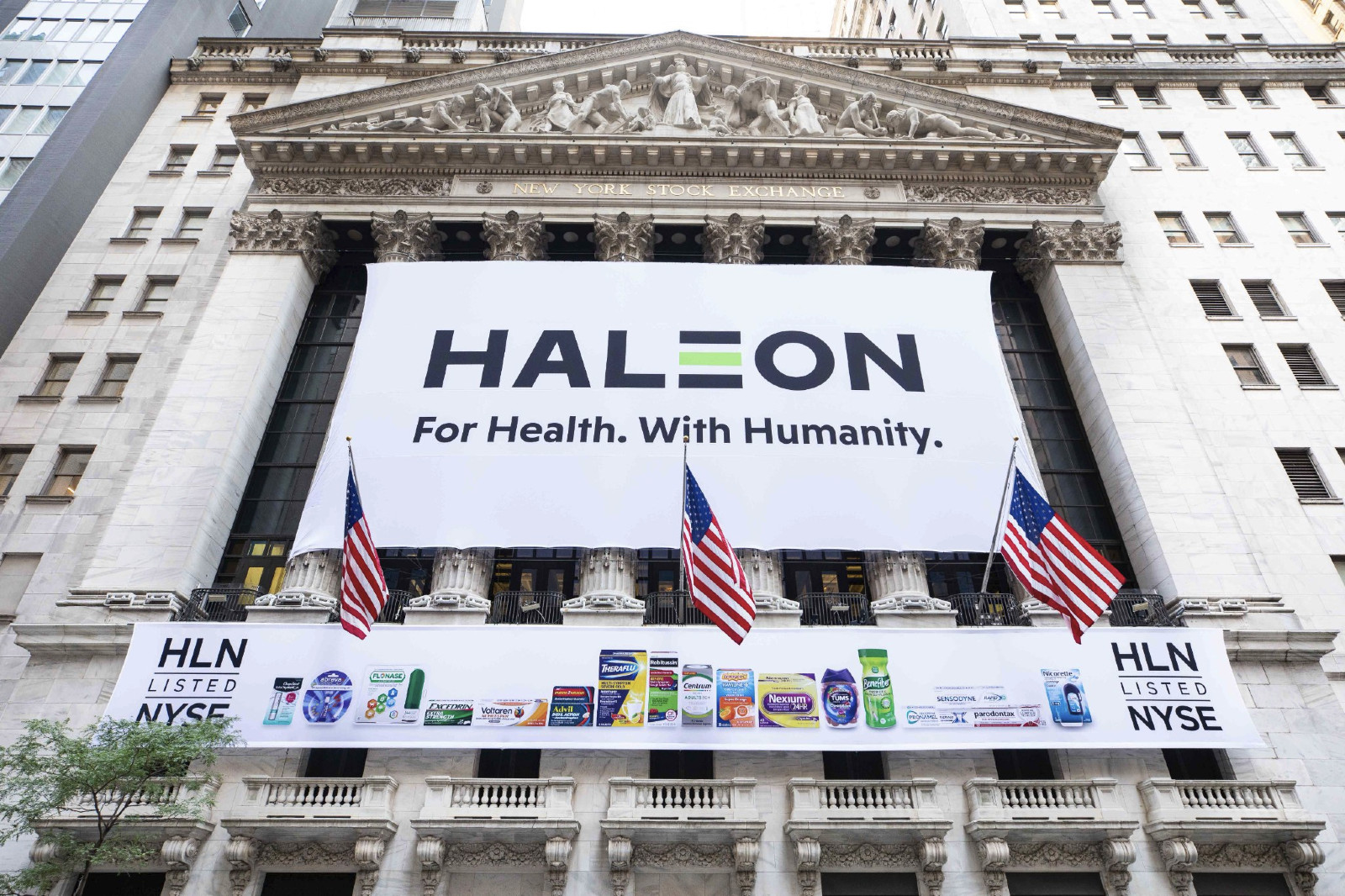
ICT-
Benya + Al Fanar join forces in Saudi: IT infrastructure contractor Benya Group has signed final agreements with Saudi’s Al Fanar to establish a tech-focused JV in the Gulf country, dubbed Alfa Benya, according to a company statement.
MANUFACTURING-
Spain’s Copreci is partnering with local appliances firms Fresh and El Araby Group to build our first gas safety valve factory. The USD 7.6 mn facility will produce 15 mn valves a year and is set to start operations in April 2023, according to a statement by the state’s Ebdaa initiative.
PHARMA-
Haleon will separate from GSK in Egypt next year: Haleon — the former consumer healthcare unit of pharma giant GlaxoSmithKline that was spun off over the summer — will kick off operations under its own brand in Egypt next year, Haleon North Africa General Manager Nabil Besri reportedly told Al Mal. Haleon Egypt will locally produce 90% of its products, he said. Haleon, which controls brands including Advil, Voltaren and Otrivin, demerged from its parent to become the world’s largest standalone healthcare business back in July.
Drugmaker Pfizer is in talks with the government to manufacture its Prevnar vaccine in Egypt, which is designed to treat pneumonia, Patrick van der Loo, the company's Regional President Middle East, Russia and Africa (MERA) told Al Arabiya, describing it as “a major investment.”
Local meds firm Eva Pharma and US-based multinational Lilly will partner to produce insulin for diabetes patients in the local market, according to a cabinet statement. Under an agreement signed yesterday, Lilly will supply Eva Pharma with the active ingredient used to make insulin at a reduced price, as well as tech transfer to help Eva Pharma manufacture the diabetes meds. Eva Pharma is set to export the product across the African continent and hopes to treat as many as 1 mn patients by 2030.
RETAIL-
Kuwait’s Al Babtain to get financing for West Cairo mall: Abu Dhabi Islamic Finance (ADIFinance), the leasing subsidiary for Abu Dhabi Islamic Bank Egypt, will lead an alliance that includes the National Bank of Egypt (NBE)’s Al Ahly Leasing and Factoring Company (ALC) to provide EGP 420 mn in financing to Kuwait’s Al Babtain Group for the construction of the Royal Park Mall in Sheikh Zayed, according to a press release (pdf).
PLANET FINANCE

Crude prices could rise once more in 2023 on the back of sanctions on Russian crude and higher global demand, the International Energy Agency (IEA) said yesterday. Western sanctions on Russian crude including an EU and UK ban and the G7 price cap could see oil supply from the country fall 14% by the end of 1Q 2023, while demand is set to increase by 300k barrels per day, the organization wrote in its latest monthly report. “As we move through the winter months and toward a tighter oil balance in 2Q 2023, another price rally cannot be ruled out,” the report reads.
The IEA report sent prices higher for the third consecutive day yesterday, even as the Federal Reserve warned it would continue to raise interest rates into 2023. Brent gained 2.6% to hit its highest level in over a week, while US crude closed 2.8% higher.
More promising data on inflation in developed markets: UK inflation dropped to 10.7% in November from a 41-year high of 11.1% in October, according to data from the Office for National Statistics. The country is the latest major developed market to record a steeper than expected decline in the rate of inflation last month, following the US and EU, in a sign that price hikes are cooling from recent decades-high peaks, Reuters reports. The Bank of England and the European Central Bank are expected to follow the Federal Reserve and hike rates by a more modest 50 bps when they meet later today.
Also worth noting this morning: Abu Dhabi’s sovereign fund is considering buying a 25-30% stake in Tel Aviv-listed financial services firm Phoenix Group. ADQ is discussing a potential USD 855 mn investment in the Israeli firm with shareholders Centerbridge Partners and Gallatin Point Capital. (Bloomberg)
|
|
EGX30 |
15,378 |
+1.5% (YTD: +28.7%) |
|
|
USD (CBE) |
Buy 24.65 |
Sell 24.73 |
|
|
USD at CIB |
Buy 24.65 |
Sell 24.72 |
|
|
Interest rates CBE |
13.25% deposit |
14.25% lending |
|
|
Tadawul |
10,248 |
+0.3% (YTD: -9.2%) |
|
|
ADX |
10,056 |
+0.1% (YTD: +18.5%) |
|
|
DFM |
3,311 |
+0.3% (YTD: +3.6%) |
|
|
S&P 500 |
3,995 |
-0.6% (YTD: -16.2%) |
|
|
FTSE 100 |
7,496 |
-0.1% (YTD: +1.5%) |
|
|
Euro Stoxx 50 |
3,975 |
-0.3% (YTD: -7.5%) |
|
|
Brent crude |
USD 82.86 |
+2.7% |
|
|
Natural gas (Nymex) |
USD 6.36 |
-8.3% |
|
|
Gold |
USD 1,807.68 |
-0.4% |
|
|
BTC |
USD 17,821 |
+0.3% (YTD: -61.4%) |
THE CLOSING BELL-
The EGX30 rose 1.5% at yesterday’s close on turnover of EGP 3.86 bn (167% above the 90-day average). Local investors were net buyers. The index is up 28.7% YTD.
In the green: GB Auto (+9.6%), Ezz Steel (+6.9%) and Oriental Weavers (+6.6%).
In the red: Eastern Company (-4.0%), Sidi Kerir Petrochemicals (-3.0%) and Abu Qir Fertilizers (-2.6%).
DIPLOMACY
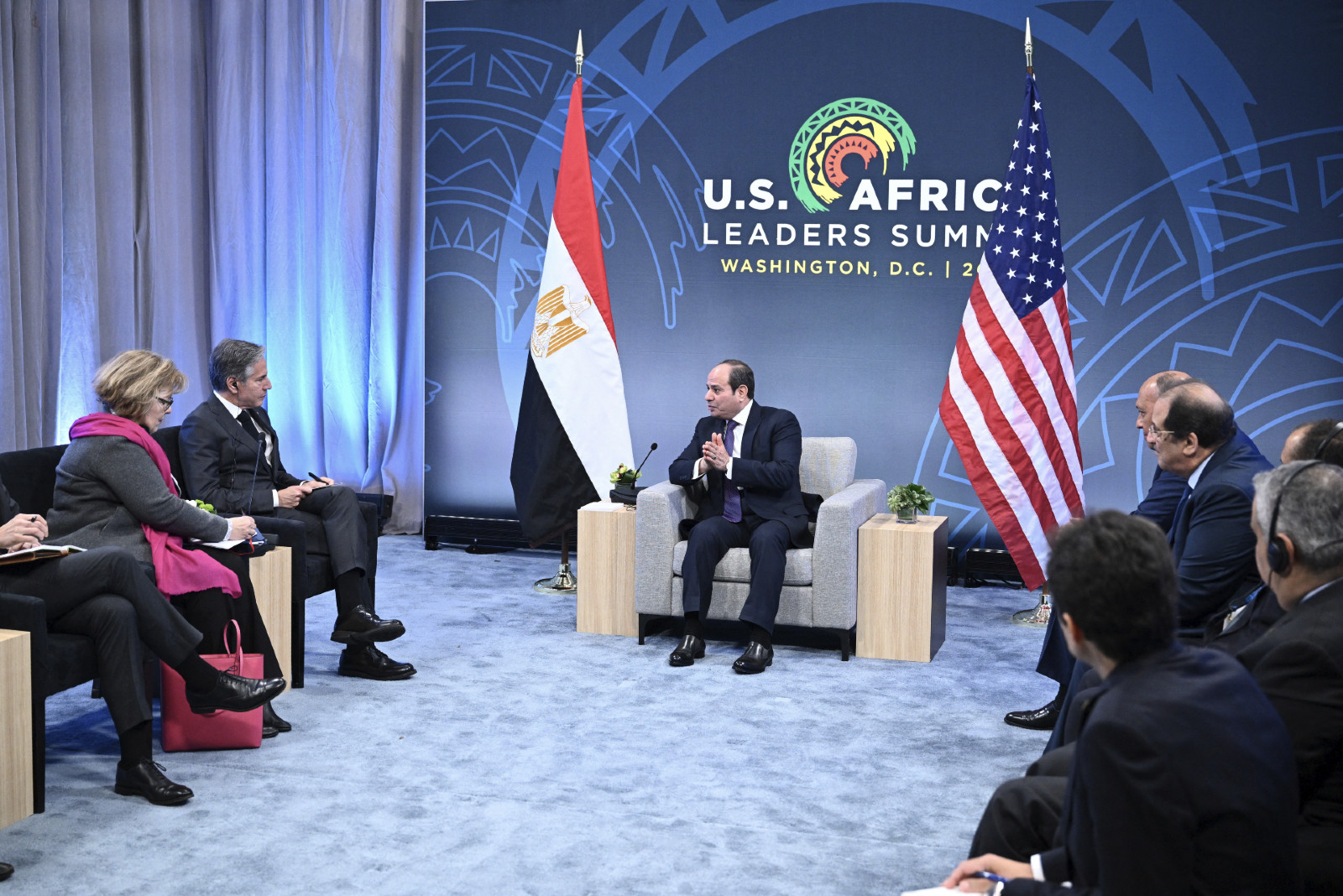
El Sisi prioritizes GERD in talks with Blinken: President Abdel Fattah El Sisi asked for US help with Ethiopia in a bid to reach a legally binding agreement on the disputed GERD, AFP reported. “This is a very vital and existential matter to us. And we thank the United States for its support and its attention,” El Sisi told US Secretary of State Antony Blinken during a meeting on the sidelines of the US-Africa summit in Washington. Blinken had already met with Ethiopian PM Abiy Ahmed a day earlier. “Reaching a legally binding agreement can achieve something good in accordance with international standards and norms. We are not asking for anything other than that,” he said. “We need your support on this matter.”
REMEMBER- Talks between Egypt, Ethiopia, and Sudan over filling and operating the dam have been at a standstill for a year, when Ethiopia unilaterally embarked on the second filling of the dam’s reservoir and Egypt and Sudan pulled out of the African Union-led negotiations. Tensions heightened further when Ethiopia completed its third filling of the dam in August.
The US doesn’t appear to be about to take Egypt’s side in the dispute, with Blinken yesterday stressing the need for a diplomatic agreement that would protect the interests “of all parties,” State Department spokesperson Ned Price said.
Also from the meeting: Blinken “recognized Egypt’s recent releases of political detainees and encouraged further progress to advance human rights,” Price said. A readout from Ittihadiya said the two also discussed developing infrastructure in Africa.
MY MORNING ROUTINE
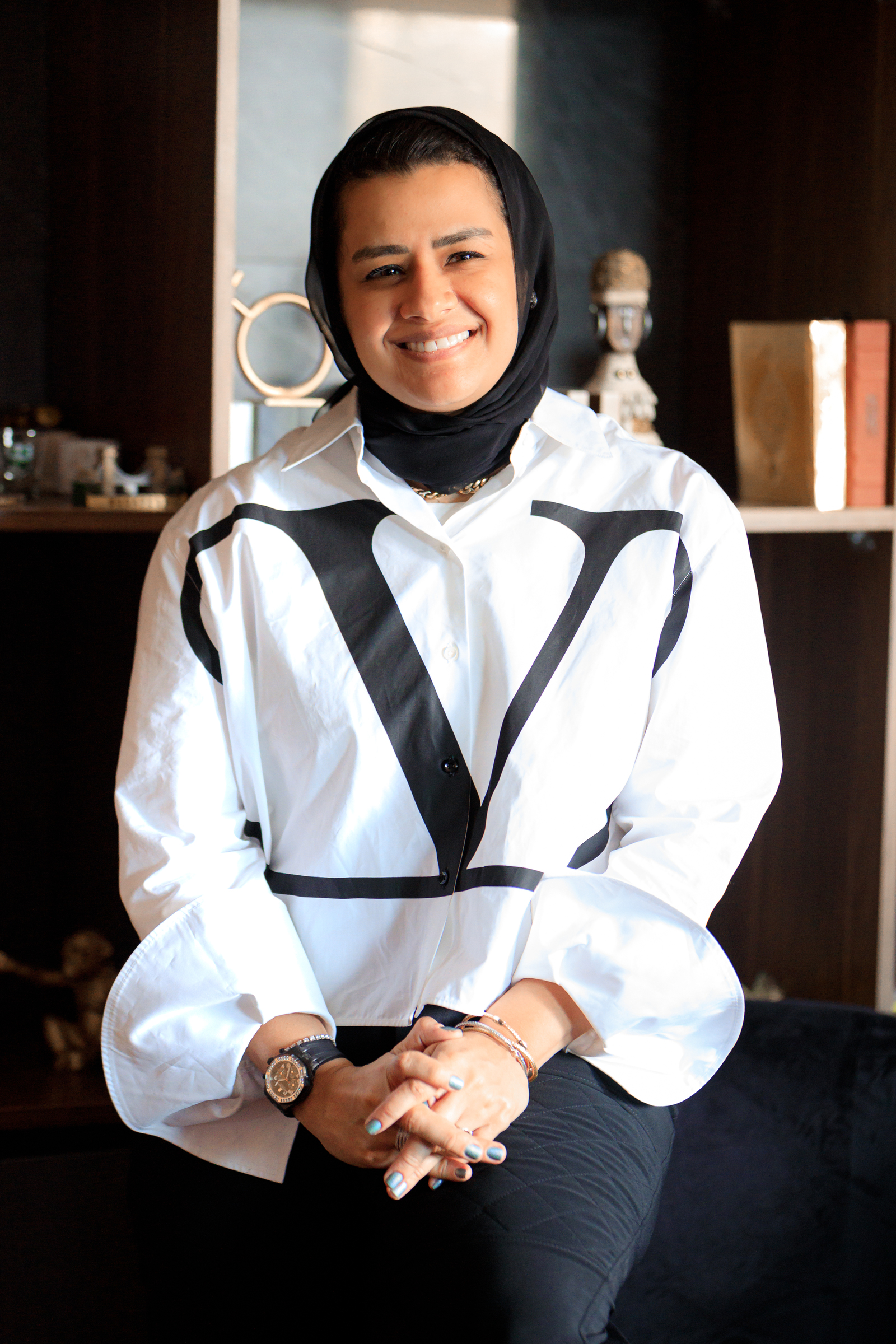
Reem Safy, CEO at Al Safy Group. Each week, My Morning Routine looks at how a successful member of the community starts their day — and then throws in a couple of random business questions just for fun. Speaking to us this week is Reem Safy (LinkedIn), CEO at Al Safy Group.
I’m a 29-year-old who’s finding her way. I’m the CEO of Al Safy Group, and I’m very proud of this large conglomerate. My father founded the company, which I manage alongside my brothers. I’m the one who keeps everything running. It’s a never-ending job for me because it’s a family business. I bring it home because my father is always waiting for me to know what happened during the day. My responsibilities would be to carry on his legacy and try to improve on something that was already big, which is difficult.
My father founded the company 38 years ago with two other people. He was one of the first to think that bringing Chinese brands into Egypt would be a good idea or bring a new aspect to the tech industry. And then everything began to pick up speed. He started the mobile business, and four or five years later, the company was one of the main distributors of Orange, and it snowballed from there. He added Xiaome, then Apple, and then we started our own retail shops and, eventually, distribution arm.
When the second generation entered the picture, we began to grow the business in a different direction, and now we have more than 360 stores. We focused on growing the tech business, and bringing in different business lines, including real estate and a food business line. We also recently entered the automotive industry.
We’re all focusing on factories and industry right now because we want more things to be made in Egypt. This year has been challenging because our business is primarily based on importation. So we’re trying to change that.
My morning routine was very different five years ago. I used to exercise every day for eight years, and I had a set time when I would leave work, but that has since stopped. I no longer have a morning routine because my responsibilities have increased as the company has grown. Currently, I leave work very late. I just wake up and grab whatever I can get from the wardrobe, and then leave to go to work. I would have loved to tell everyone that I had a morning routine that’s affecting my life in a positive way, But I’m working harder now because we’re going in different directions. Sometimes I forget to eat. I’m really giving it my all at work this year. I’m not saying this is a good thing, and I’m hoping for a better routine next year. I lost all of the “me time” that I used to have.
Every day is an abnormal day for me. I usually get home from work around 11pm and I arrive at work around 9:30am the next day. But I’m happy — I’m not complaining at all, because within this abnormal workday, as I’d like to call it, I’m surrounded by lovely people whom I consider family.
The one constant in my day is that I don’t want to forget to pray, because it can be difficult at times. This is the one thing I really stick to.
I’m not always focused and organized. Some days are better than others. You can’t be completely focused and organized all the time.
When I first started working, I was very nerdy; I wanted everything to be perfect, but I soon realized that it was draining more energy from me than I wanted, so I stopped. I realized that is acceptable to have one bad day. It’s fine to not be able to give your all every once in a while.
This year we realized that more products should be manufactured in Egypt. People are realizing that we need more factories, and I believe this is the next step for me professionally. I’m trying to learn how to do it because it was never on our agenda as Al Safy group. We’re also going into the FinTech industry.
My current work-life balance is zero over ten, but the perfect life does not exist. I was told that we need to have balance and be out of the office by 7pm. It’s comforting to hear, but it’s not always true. All of the CEOs I know, all of the people who have made a difference in their lives and have a success story, do not leave by 7pm. They don’t have a work-life balance. I’m not saying this is the right thing, but it is what it is. You’re trying to carve your path somewhere where there are hundreds of people who are better than you and similar to you, and at the end of the day, you have to give up something to get something in return,
That said, this year I went to a detox center for a week. I took a week off because I was completely burnt out. It was a wonderful experience for me. I spent some time alone reflecting on everything in my life. I rarely have time for myself, so when I did it, I went all in: I turned off the phone, didn’t talk to anyone.
The books I enjoy reading the most are all psychology-related. I majored in engineering and then I got my master’s degree in psychology. Someone recently recommended a book to me. I’m overjoyed that it exists, and I believe everyone should read it: The Subtle Art of Not Giving a [redacted]. I think I’ve read it more than twice now.
As for TV shows, I’m always delighted to watch something that makes me laugh. I love watching comedies that are extremely silly, because the day is always hectic so I’d like to have something simple in my day.
The best advice I ever got was from my grandfather, who raised me. The best advice he ever gave me was that I should always be true to myself. He encouraged me always to be as authentic as possible.
CALENDAR
NOVEMBER
20 November-18 December (Sunday-Sunday): 2022 Fifa World Cup, Qatar.
DECEMBER
13-15 December (Tuesday-Thursday): US-Africa Leaders Summit.
15 December (Thursday): European Central Bank monetary policy meeting.
16 December (Friday): IMF executive board to discuss Egypt’s EFF request.
19-20 December (Monday-Tuesday): The Arab Administrative Development Organization’s conference on Modern Methods in Hospital Management, Cairo.
20 December (Tuesday): EGX-listed Pachin will brief shareholders on offers received to acquire the company in an ordinary general assembly.
22 December (Thursday): Central Bank of Egypt’s Monetary Policy Committee meeting.
25 December (Sunday): Senate back in session.
December: Egypt to expand Sudan electricity link capacity to 300 MW.
JANUARY 2023
January: EGX-listed companies and non-bank lenders will submit ESG reports for the first time.
January: Fuel pricing committee meets to decide quarterly fuel prices.
January: Infinity + Africa Finance Corporation to close acquisition of Lekela Power.
1 January (Sunday): Use of Nafeza becomes compulsory for air freight.
1 January (Sunday): Residential electricity bills are set to rise as per the government’s six-year roadmap (pdf) to restructure electricity prices by 2025.
7 January (Saturday): Coptic Christmas.
24 January-6 February: Cairo International Book Fair, Egypt International Exhibition Center
25 January (Wednesday): 25 January revolution anniversary / Police Day.
26 January (Thursday): President El Sisi will visit India as “chief guest” at celebrations to mark the 74th anniversary of Indian independence.
26 January (Thursday): National holiday in observance of 25 January revolution anniversary / Police Day.
30 January-1 February (Monday-Wednesday): CI Capital’s Annual MENA Investor Conference 2023, Cairo, Egypt.
FEBRUARY 2023
11 February (Saturday): Second semester of 2022-2023 academic year begins for public universities.
13-15 February (Monday-Wednesday): The Egypt Petroleum Show (Egyps), Egypt International Exhibition Center, Cairo.
23-27 February (Thursday-Monday): Annual Business Women of Egypt’s Women for Success conference.
MARCH 2023
March: 4Q2022 earnings season.
23 March (Wednesday): First day of Ramadan (TBC). Maghreb will be at 6:08pm CLT.
APRIL 2023
1 April (Saturday): Deadline for banks to establish sustainability unit.
17 April (Monday): Sham El Nessim.
22 April (Saturday): Eid El Fitr (TBC).
25 April (Tuesday): Sinai Liberation Day.
27 April (Thursday): National holiday in observance of Sinai Liberation Day (TBC).
30 April (Sunday): Deadline for self-employed to register for e-invoicing.
Late April – 15 May: 1Q2023 earnings season.
MAY 2023
1 May (Monday): Labor Day.
4 May (Thursday): National holiday in observance of Labor Day (TBC).
4 May (Thursday): IEF-IGU Ministerial Gas Forum, Cairo.
22-26 May (Monday-Friday): Egypt will host the African Development Bank (AfDB) annual meetings in Sharm El Sheikh.
JUNE 2023
10 June (Saturday): Thanaweya Amma examinations begin.
19-21 June (Monday-Wednesday): Egypt Infrastructure and Water Expo debuts at the Egypt International Exhibition Center.
28 June-2 July (Wednesday-Sunday): Eid El Adha (TBC).
30 June (Friday): June 30 Revolution Day.
JULY 2023
18 July (Tuesday): Islamic New Year.
20 July (Thursday): National holiday in observance of Islamic New Year (TBC).
23 July (Sunday): Revolution Day.
27 July (Thursday): National holiday in observance of Revolution Day.
Late July-14 August: 2Q2023 earnings season.
SEPTEMBER 2023
26 September (Tuesday): Prophet Muhammad’s birthday (TBC).
28 September (Thursday): National holiday in observance of Prophet Muhammad’s birthday (TBC).
OCTOBER 2023
6 October (Friday): Armed Forces Day.
Late October-14 November: 3Q2023 earnings season.
EVENTS WITH NO SET DATE
3Q 2022: Ayady’s consumer financing arm, The Egyptian Company for Consumer Finance Services, to release its first financing product.
3Q 2022: Swvl to close acquisition of Urbvan Mobility.
End of December/early January: SFE’s pre-IPO fund to kick off roadshow.
4Q 2022: Electricity Ministry to tender six solar projects in Aswan Governorate.
4Q 2022: Raya Holding subsidiary Aman and Qalaa Holdings’ Taqa Arabia to launch their fintech company.
End of 2022: Decent Life first phase scheduled for completion.
2023: The inauguration of the Grand Egyptian Museum.
2023: Egypt will host the Asian Infrastructure Investment Bank’s Annual Meeting of the Board of Governors in 2023.
1Q 2023: Adnoc Distribution’s acquisition of 50% of TotalEnergies Egypt to close.
1Q 2023: Internal trade database to launch.
Enterprise is a daily publication of Enterprise Ventures LLC, an Egyptian limited liability company (commercial register 83594), and a subsidiary of Inktank Communications. Summaries are intended for guidance only and are provided on an as-is basis; kindly refer to the source article in its original language prior to undertaking any action. Neither Enterprise Ventures nor its staff assume any responsibility or liability for the accuracy of the information contained in this publication, whether in the form of summaries or analysis. © 2022 Enterprise Ventures LLC.
Enterprise is available without charge thanks to the generous support of HSBC Egypt (tax ID: 204-901-715), the leading corporate and retail lender in Egypt; EFG Hermes (tax ID: 200-178-385), the leading financial services corporation in frontier emerging markets; SODIC (tax ID: 212-168-002), a leading Egyptian real estate developer; SomaBay (tax ID: 204-903-300), our Red Sea holiday partner; Infinity (tax ID: 474-939-359), the ultimate way to power cities, industries, and homes directly from nature right here in Egypt; CIRA (tax ID: 200-069-608), the leading providers of K-12 and higher level education in Egypt; Orascom Construction (tax ID: 229-988-806), the leading construction and engineering company building infrastructure in Egypt and abroad; Moharram & Partners (tax ID: 616-112-459), the leading public policy and government affairs partner; Palm Hills Developments (tax ID: 432-737-014), a leading developer of commercial and residential properties; Mashreq (tax ID: 204-898-862), the MENA region’s leading homegrown personal and digital bank; Industrial Development Group (IDG) (tax ID:266-965-253), the leading builder of industrial parks in Egypt; Hassan Allam Properties (tax ID: 553-096-567), one of Egypt’s most prominent and leading builders; and Saleh, Barsoum & Abdel Aziz (tax ID: 220-002-827), the leading audit, tax and accounting firm in Egypt.

